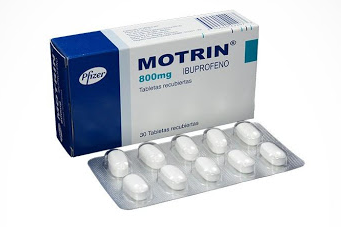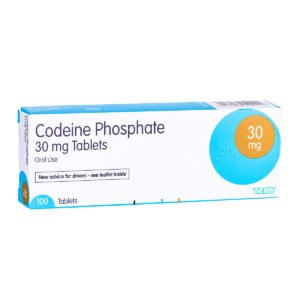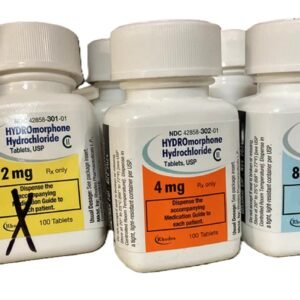No products in the cart.
MOTRIN 800 MG
$150.00 – $390.00
Pain from a variety of ailments, including headaches, tooth pain, menstrual cramps, aches in the muscles, and arthritis, can be relieved with ibuprofen. Additionally, it is used to lower fever and ease mild discomfort brought on by the flu or common cold. One nonsteroidal anti-inflammatory medication (NSAID) is ibuprofen.
N:B . PLEASE DO NOTIFIY US WHICH MG YOU WILL BE NEEDING FOR YOUR ORDER
SKU: N/A
Category: Pain Relief
Tags: buy Motrin, buy Motrin 800, buy Motrin 800 mg, where to buy Motrin 800 mg
MOTRIN 800 Mg (Ibuprofen)
Popular Brand Name(s): Motrin, Advil, and Caldolor
Ibuprofen is the common generic name(s).
Say it like this: EYE-bue-PROE-fen
Class of Drugs: NSAIDs, or nonsteroidal anti-inflammatory drugs
Accessible: both prescription and over-the-counter (OTC); certain types have generic versions accessible.
What is the purpose of it? pill that is chewed and swallowed; liquid that is injected into a blood vessel; liquid that is ingested; capsule
What is the purpose of ibuprofen(Motrin 800 mg)?
Ibuprofen (Motrin 800) is frequently used to relieve pain and inflammation brought on by a number of illnesses, such as arthritis, menstrual cramps, headaches, back pain, muscle soreness, and dental pain. It also helps to lower fever. For the treatment of severe pain, ibuprofen(800 mg Motrin) injection can also be used in conjunction with opioid painkillers like morphine or hydrocodone. how often can you take Motrin 800
Other conditions may also be treated with ibuprofen, as directed by your healthcare provider. Motrin 800 mg Dosis
What is the mechanism of action of ibuprofen?
Ibuprofen acts by preventing the body from releasing chemicals that are responsible for fever, inflammation, and discomfort. is Motrin 800 mg strong
What dose forms are available for ibuprofen(Motrin 800 mg dosage)?
These are the oral dose forms that are available for ibuprofen.
Oral tablets: 100 mg, 200 mg, 400 mg, 600 mg, Motrin 800 dosage
200 milligram oral capsules
Chewable 50 mg and 100 mg tablets
100 mg/5 mL and 50 mg/1.25 mL oral suspension
How do I keep ibuprofen in storage?
Keep ibuprofen at room temperature, roughly 68–77 degrees Fahrenheit (20–25 degrees Celsius). It can be left out in the elements for brief periods of time, like during transit, between 59 and 86 degrees Fahrenheit (15 and 30 degrees Celsius). Keep in a dry, cold environment.
Adverse Reactions
Which ibuprofen side effects are most prevalent?
The following is a list of the most typical ibuprofen adverse effects. If you have any of these unpleasant side effects, let your doctor know.
stomach ache
diarrhea or constipation
Burning sensation or gas
vomiting or feeling queasy
lightheadedness
Headache
Bleeding Rash (see below)
Pain at the injection site
Anemia (children using injections)
Ibuprofen may have other negative effects not mentioned here. Should you believe you are experiencing a medication adverse effect, get in touch with your doctor. Within the United States, i know about ibuprofen
What are ibuprofen’s harmful side effects?
The most severe ibuprofen side effects, however less frequent, are included here, along with advice on what to do in their event. mild to moderate pain
Stroke and Heart Attack. Ibuprofen may raise your chance of having a fatal heart attack or stroke. Higher doses and prolonged ibuprofen use are associated with an elevated risk in those with pre-existing cardiac disease. If you recently experienced a heart attack, see your healthcare professional before using ibuprofen. Your chance of experiencing another heart attack may rise as a result. If you experience any of the following signs of a heart attack or stroke, get emergency assistance. ibuprofen 800mg tablets 100
pressure or pain in the chest
an accelerated or irregular heartbeat
Breathing difficulties
discomfort in your arm, jaw, throat, or back
vomiting, nausea, dizziness, or sweating
abrupt onset of weakness on one side of the body
abrupt and intense headache
slurred or difficult to understand speech
Sickened. Ibuprofen can make bleeding more likely, particularly if you take other medications that make bleeding more likely or have a bleeding disorder. Notify your healthcare professional as soon as you observe any bleeding symptoms, such as easily bruised areas.
stomach bleeds. The use of ibuprofen may raise your risk of stomach bleeding, ulcers, and rips (perforations). A history of bleeding issues, stomach ulcers, taking larger doses of ibuprofen or taking it longer than recommended, being in poor health, being 60 years of age or older, having liver disease, smoking, drinking alcohol, or using specific other medications increase your risk. If you have any of the following symptoms, stop taking ibuprofen and receive medical care straight once.
vomit blood; tarry or black excrement
Not going away stomach ache
upset stomach
Feel lightheaded
Anemia. Ibuprofen may contribute to anemia, a disorder characterized by decreased red blood cell counts. If you experience any of the following anemia symptoms, let your doctor know.
unusual exhaustion or weakness
chilly hands and feet
an accelerated or irregular heartbeat
pale or tan skin
feeling lightheaded, dizzy, or like you’re going to pass out
Breathlessness
harm to the liver. Ibuprofen use has the potential to cause hepatotoxicity, or liver damage. Should you experience any of the following signs of liver injury, get in touch with your doctor straight once.
vomiting or feeling queasy
abdominal or stomach ache
High temperature
Weakness or excessive fatigue
Itching
appetite decline
Pale-colored excrement
urine with a dark hue
The yellowing of your skin or the whites of your eyes (sometimes termed jaundice)
elevation of blood pressure, or hypertension. If you have a history of high blood pressure, ibuprofen may make it worse or raise your blood pressure. If your blood pressure rises while taking this medication, give your doctor a call.
Seek immediate medical assistance if, after taking your blood pressure, the top number (systolic) is 180 mm Hg or higher, or the bottom number (diastolic) is 120 mm Hg or higher. Even though a blood pressure increase might not be apparent, be on the lookout for any of the following signs of extremely high blood pressure.
abruptly intense headache
chest ache
Feeling lightheaded or confused
Breathing difficulties
feeling queasy or throwing up
blurry or other visual abnormalities
Uncertainty
ear buzzing
nosebleed
sensation of heartbeats being skipped
Heart Attack. Heart failure risk may rise if you use ibuprofen. If you experience any of the following heart failure symptoms, stop taking ibuprofen and give your doctor a call straight once.
breathing difficulties or shortness of breath, especially when lying down
Your legs, ankles, or feet swelling
unusually quick weight increase
unusual exhaustion
Damage to the kidneys. Ibuprofen use may cause renal damage. If you experience any of the following signs of kidney injury, stop taking ibuprofen and give your doctor a call straight once.
less need to urinate
Edema, or swelling in the legs, ankles, or feet
Weakness or excessive fatigue
Breathing problems or tightness in your chest
Perplexity
emesis
Convulsions
Extreme Allergic Responses. Ibuprofen may result in allergic reactions, particularly DRESS reactions, a particular kind of allergic reaction. Drug Reaction with Eosinophilia and Systemic Symptoms is referred to as DRESS. Another name for it is multiorgan hypersensitivity. This is an adverse reaction that can impact your heart, kidneys, liver, and other organs. If you experience any of the following signs of a severe allergic reaction, stop taking the medication and get medical attention straight once.
wheeze or difficulty breathing
pounding heart
fever or unwell mood in general
enlarged lymph nodes
swelling of the neck, mouth, tongue, lips, or face
Difficulty swallowing or constricted throat
Itching, rash, or hives—pale red pimples on the skin—on the skin
vomiting or feeling queasy
lightheadedness, dizziness, or fainting
cramps in the stomach
Joint discomfort
urine with a dark hue
The yellowing of your skin or the whites of your eyes (sometimes termed jaundice)
severe reactions on the skin. Exfoliative dermatitis, Stevens-Johnson Syndrome (SJS), and Toxic Epidermal Necrolysis (TEN) are serious skin reactions that can result in death if left untreated that are caused by ibuprofen. Call your doctor as soon as possible and stop taking ibuprofen if you start to get a rash. If you experience any of the following signs of a severe skin response, get medical care right once.
painful purple or crimson skin that peels off and looks burned
blisters or a flat, red rash on your lips, nose, or genitalia
Watery, red, and hurting eyes
fever or unwell mood in general
thicker skin patches
Sores covered in crusts
Vision Issues. Sometimes, ibuprofen can impair your vision. If you experience any of these symptoms, stop taking ibuprofen and see your doctor.
reduced or hazy eyesight
blind area
Modification in the color perception
Cautions and Warnings
For whom is ibuprofen inappropriate?
Allergies to substances. It is not recommended for anyone allergic to any of the following to use ibuprofen products.
Any medication classified as a nonsteroidal anti-inflammatory drug (NSAID), such as aspirin, ibuprofen, Advil, Caldolor, and Motrin
Any component of the particular product that was dispensed
You can ask your pharmacist about the whole list of components in the particular ibuprofen products they carry.
Cardiovascular Surgery. Ibuprofen should not be taken immediately before or after coronary artery bypass grafting (CABG), a type of cardiac surgery. During this period, taking ibuprofen may raise your risk of having a heart attack or stroke.
What information should I be aware of before using ibuprofen?
Take ibuprofen as directed if a medical professional has prescribed it to you. When using ibuprofen over-the-counter, avoid taking it for longer than ten days without first consulting your doctor.
Even if someone else has the same illness as you, do not give them access to ibuprofen that was prescribed to you by a healthcare professional. It could hurt them.
Keep ibuprofen out of children’s reach.
If you experience stomach distress, you can take ibuprofen with food or milk.
To determine the appropriate dosage of ibuprofen oral liquid, use a precise measuring tool. Using a regular spoon as a measuring tool is not precise and could lead to the incorrect dosage being taken. Consult your pharmacist for advice on a suitable measuring tool.
Some of the negative effects of ibuprofen may be more likely to affect people 60 years of age and older. If you fall within this age range, discuss your risks with your healthcare physician.
Relationships
Are there any food or drink interactions with ibuprofen?
Ibuprofen and food or beverages do not currently interact in any recognized ways.
The risk of bleeding and stomach ulcers increases if you drink alcohol while taking ibuprofen. It is advisable to consume fewer alcoholic beverages.
Does ibuprofen have any pharmacological interactions with other medications?
It is important to inform your healthcare practitioner about all the vitamins, minerals, herbal items, prescription drugs, over-the-counter (OTC) medications, and other supplements you use.
Specifically, before taking ibuprofen, be sure to discuss if you are utilizing any of the following.
Any nonsteroidal anti-inflammatory medications (NSAIDs), which are used to treat pain, swelling, and fever and are found in many prescription and over-the-counter treatments, such as naproxen and others
Methotrexate (includes Trexall)
A corticosteroid, a medication used to treat specific inflammatory diseases
Aspirin
A blood thinner is a prescription drug used to treat or avoid blood clots.
An ACE inhibitor is a type of medication used to treat heart failure, excessive blood pressure, and some renal issues.
An angiotensin II receptor blocker (ARB) is a medication used to treat heart failure, excessive blood pressure, and other cardiac diseases.
A beta-blocker is a medication that is typically used to lower blood pressure and treat specific other cardiac diseases.
Medications for anxiety and depression frequently include serotonin norepinephrine reuptake inhibitors (SNRIs) or selective serotonin reuptake inhibitors (SSRIs).
Cyclosporine is an immunosuppressive medication (Gengraf, Neoral, Sandimmune, and others).
A diuretic, sometimes known as a water pill, is a medication that lowers blood pressure and edema (fluid retention).
One medication used to treat certain mental health issues is lithium.
A medication called pemetrexed (Alimta, Pemfexy) is used to treat some types of cancer.
Digoxin is a medication used to treat certain irregular heart rhythms or heart failure.
Overdosage/Illicit Dose
If I unintentionally take too much ibuprofen, what should I do?
Seek immediate medical attention if you or someone else has taken too much ibuprofen.
What happens if I forget to take my ibuprofen dose?
Take the missed dose as soon as you remember it if you miss it. Take only the next dose, skipping the missed one if it is almost time for your next one. Never take more than one dose or two.
buy Motrin 800 mg, can i buy Motrin 800 over the counter, can you buy 800 mg Motrin over the counter, can you buy Motrin 800 mg over the counter, where can i buy Motrin 800, where can i buy Motrin 800 mg, where to buy Motrin 800 mg, buy Motrin 800, buy Motrin 800 online, can you buy Motrin 800 over the counter, buy Motrin online,
buy Motrin, buy Motrin 800 mg, buy Motrin near me , buy Motrin without prescription, can i buy Motrin 800 over the counter , can you buy 800 mg Motrin over the counter, can you buy Motrin 800 mg over the counter, can you buy Motrin over the counter, how old do you have to be to buy Motrin,
Motrin for sale, Motrin for sale near me, children’s Motrin for sale, infant Motrin for sale, Childrens Motrin for sale, Motrin platinum for sale,
| QUANTITY | 50 Tabs, 100 Tabs, 150 Tabs |
|---|
Be the first to review “MOTRIN 800 MG” Cancel reply
Related products
Anti Anxiety
$180.00 – $300.00
This product has multiple variants. The options may be chosen on the product page Pain Relief
$180.00 – $300.00
This product has multiple variants. The options may be chosen on the product page Pain Relief
$150.00 – $550.00
This product has multiple variants. The options may be chosen on the product page
$250.00 – $1,950.00
This product has multiple variants. The options may be chosen on the product page Anti Anxiety
$120.00 – $350.00
This product has multiple variants. The options may be chosen on the product page Pain Relief
$250.00 – $1,190.00
This product has multiple variants. The options may be chosen on the product page Pain Relief
$275.00 – $500.00
This product has multiple variants. The options may be chosen on the product page Pain Relief
$400.00 – $700.00
This product has multiple variants. The options may be chosen on the product page 










Reviews
There are no reviews yet.